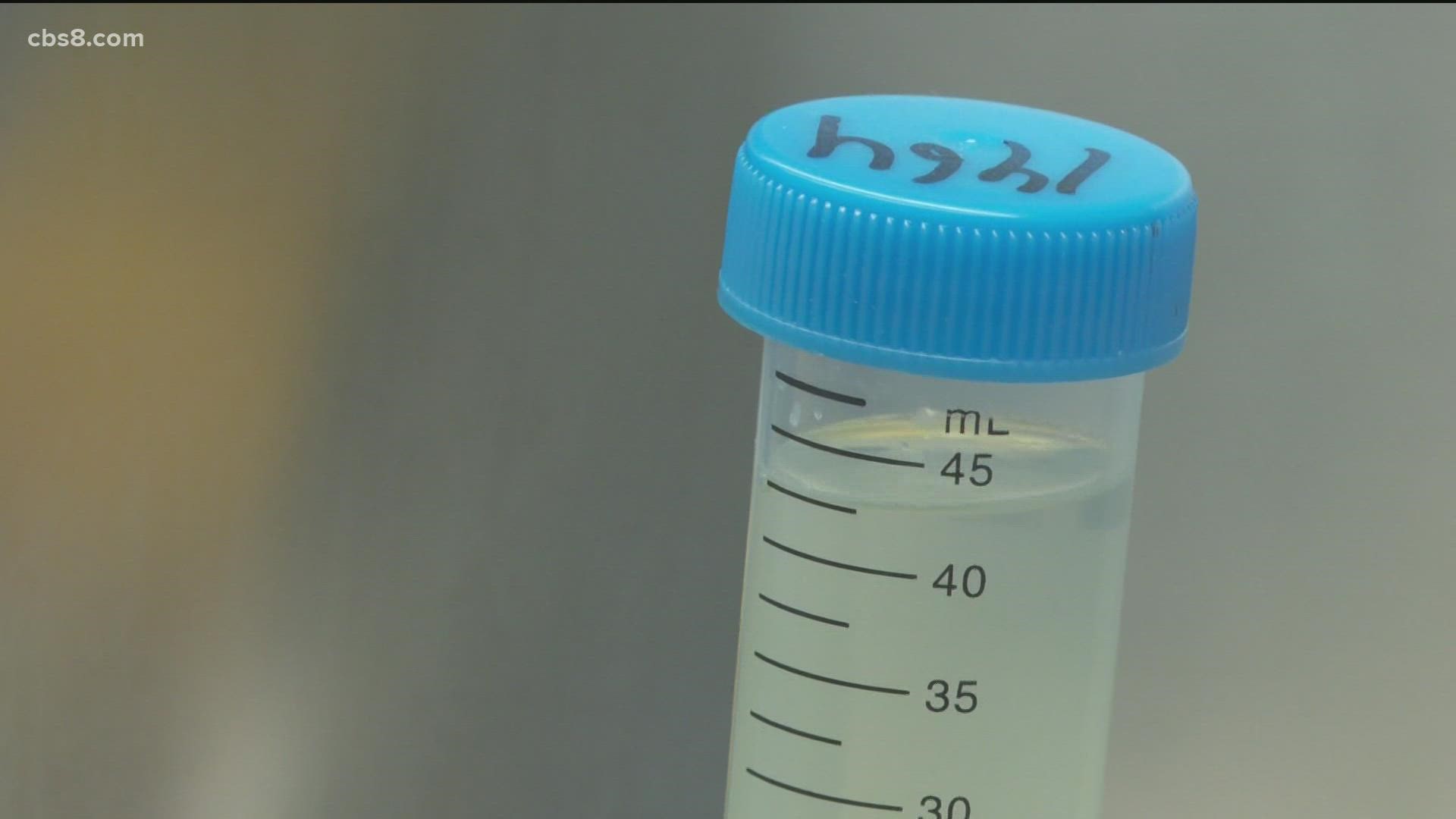SAN DIEGO COUNTY, Calif. — Researchers at UC San Diego say the measurements for COVID-19 in wastewater are trending down in San Diego County. The latest numbers show a 20% drop in omicron concentration over the last two weeks.
The highest level of omicron concentration ever seen in wastewater was earlier this month but as of Thursday researchers say that number is decreasing, and that’s a positive sign in the right direction.
Researchers at UC San Diego say lower levels of the omicron variant are being detected in wastewater, despite the rise of COVID-19 cases. On Wednesday, San Diego County health officials reported a 29% increase in new cases since last week.
“If you see a peak in wastewater, you know that the clinical or the hospitalization peak is going to come soon, within the next week or two. But if it starts going down, that’s also a good sign, saying that maybe omicron or whichever variant has peaked,” said Smruthi Karthikeyan, a UC San Diego School of Medicine researcher and post-doctoral scholar.
UC San Diego uses robotic samplers to measure the virus concentration at the Point Loma Wastewater Treatment Plant. It serves about 2.3 million people or nearly 2/3 of the residents in San Diego County.
“We use magnetic particles. We add it to our sewage. So, what these tiny magnetic particles do is, they only stick on to the virus,” Karthikeyan said.
After extracting the magnetic particles from urine and stool, the particles are sequenced to see which variant is most prevalent. In the last month, 95% of the variant discovered was omicron and the remaining 5% was the delta variant. The results can serve as an early warning about changes in COVID-19 caseloads in the community.
“The good thing about wastewater is, in a lot of areas where you don’t have a lot of testing or you just don’t have the resources to test every person every day, you can use wastewater a passive surveillance tool and only test when you see a positive in the wastewater,” Karthikeyan said.
Even as the omicron variant decreases in wastewater measurements, Karthikeyan said people should still wash their hands, wear a mask and get vaccinated to stay as safe as possible.
WATCH RELATED: How fast can omicron spread?

